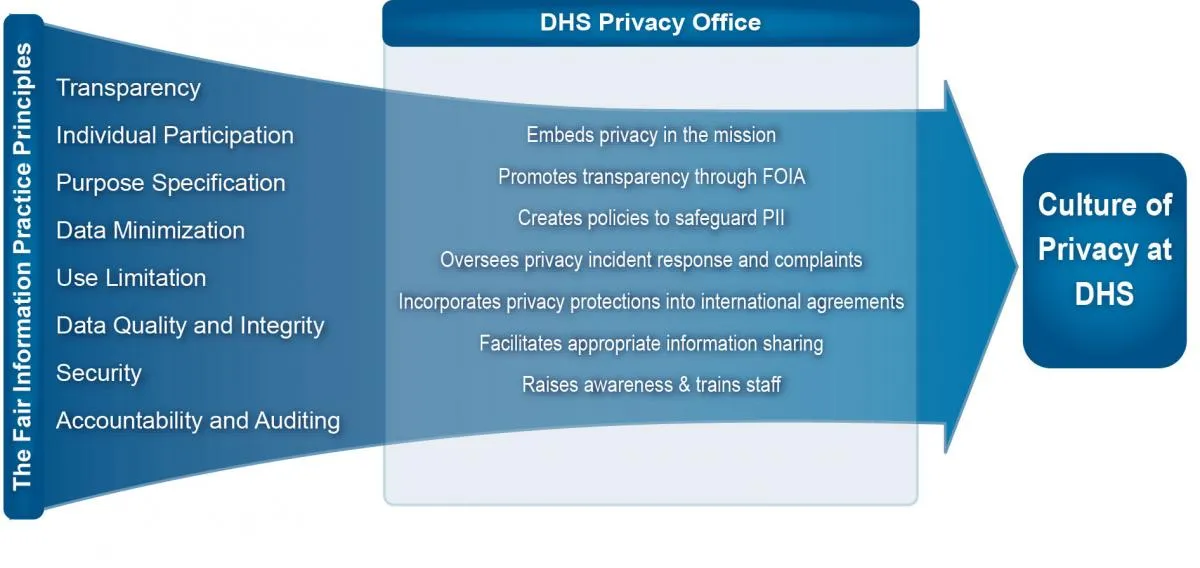U.S. Customs and Border Protection's Role in Safeguarding Privacy
As an agency within Department of Homeland Security (DHS), the first statutorily-required privacy office in any federal agency, responsible for evaluating Department programs, systems, and initiatives for potential privacy impacts, and providing mitigation strategies to reduce the privacy impact, privacy protections are inexorably linked to U.S. Customs and Border Protection's (CBP) mission and core values. The CBP Privacy Division strives to fulfill CBP’s objectives though the evaluation of CBP programs, systems, and initiatives for potential privacy impacts, and by providing mitigation strategies to safeguard CBP records containing personally identifiable information (PII). The Privacy Division works with CBP component offices to ensure that privacy considerations are addressed when planning or updating any program, system, or initiative.
Fair Information Practice Principles
CBP’s privacy policy framework is based upon the DHS Fair Information Practice Principles (FIPPs). The FIPPs are a set of eight principles – Transparency, Individual Participation, Purpose Specification, Data Minimization; Use Limitation, Data Quality and Integrity, Security, and Accountability and Auditing – used to assess and enhance privacy protections by analyzing the nature and purpose of the collection of PII.


